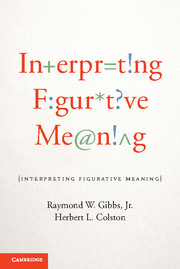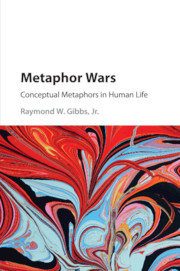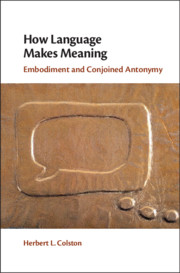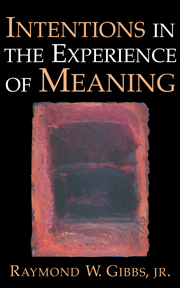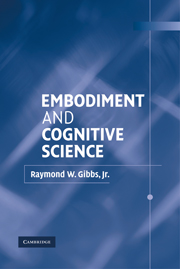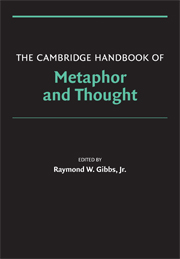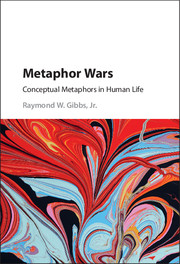Interpreting Figurative Meaning
- Authors:
- Raymond W. Gibbs, Jr, University of California, Santa Cruz
- Herbert L. Colston, University of Wisconsin, Parkside
- Date Published: May 2012
- availability: This ISBN is for an eBook version which is distributed on our behalf by a third party.
- format: Adobe eBook Reader
- isbn: 9781139369350
Find out more about Cambridge eBooks
Adobe eBook Reader
Other available formats:
Paperback, Hardback
Looking for an examination copy?
This title is not currently available for examination. However, if you are interested in the title for your course we can consider offering an examination copy. To register your interest please contact [email protected] providing details of the course you are teaching.
-
Interpreting Figurative Meaning critically evaluates the recent empirical work from psycholinguistics and neuroscience examining the successes and difficulties associated with interpreting figurative language. There is now a huge, often contradictory literature on how people understand figures of speech. Gibbs and Colston argue that there may not be a single theory or model that adequately explains both the processes and products of figurative meaning experience. Experimental research may ultimately be unable to simply adjudicate between current models in psychology, linguistics and philosophy of how figurative meaning is interpreted. Alternatively, the authors advance a broad theoretical framework, motivated by ideas from “dynamical systems theory,” that describes the multiple, interacting influences which shape people’s experiences of figurative meaning in discourse. This book details past research and theory, offers a critical assessment of this work, and sets the stage for a new vision of figurative experience in human life.
Read more- Suitable for students and scholars in philosophy, linguistics and psychology
- Will be especially attractive to those working in the interdisciplinary field of cognitive studies
Reviews & endorsements
"...present a state-of-the-art view of what experiments have shown (or not shown) about how humans comprehend and process figurative language such as metaphor, metonymy, irony, sarcasm, proverbs, and idioms.... A valuable guide to the last 20-odd years of research on figurative language, this is a book for those who do not have the time to digest the primary literature in its entirety.... Recommended..."
--S.A. Dooley, University of Texas at Brownsville, ChoiceSee more reviews"...The new book Interpreting Figurative Meaning by Raymond Gibbs Jr. and Herbert Colston provides a useful look at the research on how we understand figurative language.... The writing style of the book is highly entertaining. The tone of the book is quite jovial, with many entertaining transcripts and examples to tie together concepts.... the book is an exhaustive review of the research on figurative language, including great detail describing experiments that have examined the different figures of speech that are considered figurative language.... It provides a one-stop reference of no less than 10 of the most popular viewpoints applied to figurative language. We predict that the book will appeal to both the experienced language researcher and the newcomer."
--Dr. Shelia Kennison, Oklahoma State University and Rachel Messer, PsyCRITIQUESCustomer reviews
Not yet reviewed
Be the first to review
Review was not posted due to profanity
×Product details
- Date Published: May 2012
- format: Adobe eBook Reader
- isbn: 9781139369350
- availability: This ISBN is for an eBook version which is distributed on our behalf by a third party.
Table of Contents
1. Introduction
2. Identifying figurative language
3. Models of figurative language comprehension
4. Interpreting specific figures of speech
5. Indeterminacy of figurative experience
6. Factors shaping figurative language understanding
7. Broadening the scope of figurative language studies.Instructors have used or reviewed this title for the following courses
- Law and Literature
- Minds and Machine
- Public Speaking
- Style
Sorry, this resource is locked
Please register or sign in to request access. If you are having problems accessing these resources please email [email protected]
Register Sign in» Proceed
You are now leaving the Cambridge University Press website. Your eBook purchase and download will be completed by our partner www.ebooks.com. Please see the permission section of the www.ebooks.com catalogue page for details of the print & copy limits on our eBooks.
Continue ×Are you sure you want to delete your account?
This cannot be undone.
Thank you for your feedback which will help us improve our service.
If you requested a response, we will make sure to get back to you shortly.
×
